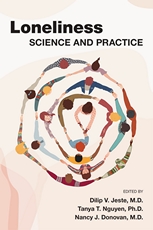Stranger Than Fiction
When Our Minds Betray Us
View Pricing
Description
Stranger Than Fiction: When Our Minds Betray Us is a spellbinding invitation into the world of the human mind that will change our perceptions of mental illness forever. Despite the growing body of scientific discoveries into the nature of the human mind, the stigma attached to mental illness remains deeply entrenched in the general public's consciousness, the product of inaccurate information and centuries of mystery.
In a simple conversational style, two distinguished clinicians, Drs. Marc and Jacqueline Feldman, discuss the complexities of mental disorders and their treatment. Using the metaphor of the lie of the mind, a disorder in which a person's thinking becomes unintentionally distorted, the authors approach mental illness from the perspective that these disorders are merely extreme variations of universally shared thoughts, feelings, and behaviors. Stranger Than Fiction removes the artificial division separating the mentally ill from the general public and demystifies symptoms that often seem bizarre.
On this journey through the human psyche, the Feldmans use vivid, enlightening, and often poignant cases from their own professional experience that dramatically illustrate how psychiatrists help patients liberate themselves from the mental conditions that imprison them. The reader is invited into therapy sessions and hospital rooms and receives an insider's view of the difficulties that each therapist confronts when treating disturbed patients. The authors show how clinical decisions often rely more on educated hunches than medical certainties and reveal that the practice of psychiatry is as much an art as it is a science.
After finishing this unforgettable book, readers will better understand the true nature of mental illness and witness the joy that even the smallest triumph produces in patients and caregivers alike.
Contents
- Introduction: what is a lie of the mind? Phobias: fear itself. Somatoform disorders: what does my body have to do with it? Dissociative disorders: who am I today? False memory syndrome: accurate recollections or implanted histories? Delusions: Miss Annie's bucket and other unrealities. Hallucinations: seeing is believing. Mass hysteria: witch hunts and social contagion. Final thoughts: Treatment for lies of the mind: learning from the past, catapulting into the future. References and suggested readings. Index.
About the Authors
Marc D. Feldman, M.D., is Vice Chair for Clinical Services in the Department of Psychiatry and Behavioral Neurobiology at the University of Alabama at Birmingham (UAB). He is also Medical Director of the UAB Center for Psychiatric Medicine and is a recipient of an Exemplary Psychiatrist Award from the National Alliance for the Mentally Ill.
Jacqueline M. Feldman, M.D., Director of the Division of Public Psychiatry in the Department of Psychiatry and Behavioral Neurobiology at the University of Alabama at Birmingham. She is also Executive Director of the UAB Comprehensive Community Mental Health Center and Medical Director of the UAB Community Psychiatry Program. She has received the Exemplary Psychiatrist Award of the National Alliance for the Mentally Ill.
Related Products
Carousel Control - items will scroll by tabbing through them, otherwise arrows can be used to scroll one item at a time








